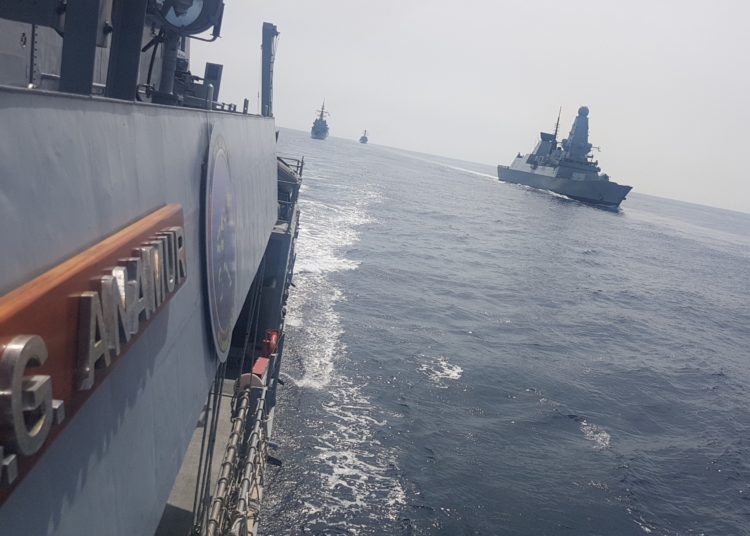Abdullah Bozkurt/Stockholm
The Turkish government has been downplaying the impact of the Russian invasion of Ukraine on trade routes and freight transportation, holding back its criticism of Moscow while refusing to join any sanctions on Russia.
Although the transportation and trade routes going to and through Ukraine were blocked, prompting an outcry from Turkish freight companies over a loss of business and increased costs, the government of President Recep Tayyip Erdoğan has publicly been downplaying the impact and refraining from directing any criticism at Russia for its invasion of Ukraine.
“With the war in the north of the Black Sea, production and supply chains have faced new threats,” Erdoğan said in a speech after a cabinet meeting on April 12 as he claimed Turkey was on the way to becoming the “logistics superpower of a wide geography stretching from London to Beijing, from Siberia to South Africa.”
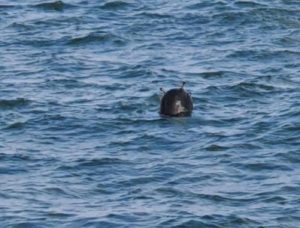
Erdoğan said his government has taken steps to turn the Russia-Ukraine war into an opportunity for Turkey and to soon make the country into one of the top 10 economies in the world. He did not make any comment that could be construed as criticism of Russia in his long speech.
Other Turkish officials have also been reserved in their comments on Russia and reticent to level any criticism of Moscow. In a letter to parliament Transportation and Infrastructure Minister Adil Karaismailoğlu wrote that Ukraine has a negligible share in world land transportation and dismissed the opposition’s concerns over increased freight costs for Turkish firms. He said new routes were being established through Poland and Russia to deliver goods to the Baltic states and Belarus.
Letter to parliament written by Adil Karaismailoğlu, the minister for transportation and infrastructure:
On the other hand, the transportation industry has been sounding the alarm over the disruption of trade routes due to the crisis, warning of increased costs in fuel and insurance and a failure to comply with contracts.
According to official government data, 1,089 Turkish logistics companies use land routes through Russia, while 902 use Ukraine to deliver exports to destinations. Although the government claimed there is still limited transportation activity through Ukraine, industry officials say the routes are completely blocked and that there is no way to transport goods to Ukraine or through Ukrainian territory.
The İstanbul-based International Transporters Association (UND) recently issued a message to its members that Ro-Ro transport between Turkey and Ukraine was halted and that Turkish vessels remain stranded in Ukrainian ports, unable to return to Turkey. It also added that transit routes through Ukraine for other European destinations were shut down.
According to the UND, European Union member states are also blocking Turkish freight companies from carrying some goods to Russia and Belarus over an EU-wide embargo on those countries. The association said the premiums for liability insurance have increased for freight carriers and expects that the complications in future and existing contracts over war provisions would continue.
Turkish logistics firms continue to deliver goods to Russia through ports in the Black Sea and land corridor routes through Azerbaijani and Georgian territory, but those were also hit with separate challenges that led to the closure of border gates or the slowdown of traffic.
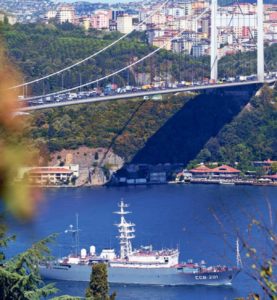
Floating mines pose a significant threat to Turkish shipping lines in the Black Sea, a major artery for grain, oil and other products through the Turkish Straits, which connect to the Aegean and Mediterranean seas. The risk from mines has undermined the operation of freight and maritime companies especially after an Estonian freighter sank after colliding with a sea mine off the coast of Odessa on March 3, 2022.
So far, the Turkish navy has intercepted and deactivated three mines that were floating in the Black Sea, and mine hunter ships and navy aircraft were tasked with monitoring the sea for the detection of more mines.
The Turkish government is careful not to point fingers at either Russia or Ukraine, with both accusing the other of laying the mines. Turkey’s military deactivated mines discovered in its territorial waters close to Bosporus Strait but decided to not share any detailed information on the type of mines they were or footage of their destruction.
On March 26 Defense Minister Hulusi Akar told reporters that the military had not yet reached a conclusion on the origin of the mines, saying: “It would not be right to say anything without being sure about whether the mines were laid by Ukraine or if some other mines floated here. Our assessment of this is continuing.” He declined to provide the number of intercepted mines.
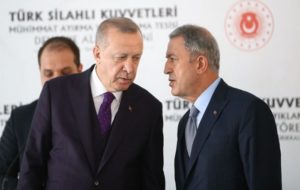
In a closed meeting held at the executive committee of the ruling Justice and Development Party (AKP) on April 5, Akar reportedly told party members that the mines were of Russian origin and that the fail-safe system on the mines in the event of a drift had been disabled. He said he suspected a plot to create a pretext for NATO mine hunting ships to enter the Black Sea and intensify pressure on Turkey to ease restrictions on warships passing through Turkish Straits in violation of the Montreux Convention. He vowed to not allow warships to enter into Black Sea nonetheless.
A drifting mine discovered by Romania tells a different story and provides more clues as the Romanian government shared images and footage from the intercepted mine which indicated that it came from a Ukrainian navy stockpile. The Ukrainian government accused Russia of deploying mines seized from its navy stockpile after Russia’s annexation of Crimea in 2014. The Russian government accused Ukraine of spreading disinformation.
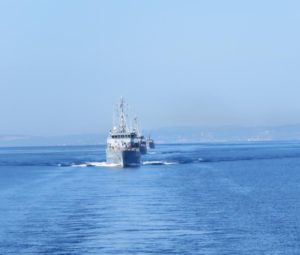
Although Russia claimed the mines were originally laid by the Ukrainian navy near the port of Odessa and that some had drifted away after breaking from their cables, there are allegations that those mines were most likely released by a Russian submarine in a covert operation in order to undermine Ukraine’s credibility. An article on the Turkish Minute news website claimed that the current weather conditions made it impossible for those mines to have travelled so far and that NATO reconnaissance aircraft flying over the Black Sea would have spotted them if they were loose and floating freely in the water.
Whatever the case, Turkish officials were extra careful to not implicate Russia over the threat of mines to shipping lines and in fact leaked a discussion from an AKP party meeting suggesting that government officials are more inclined to believe NATO was behind the floating mines in the Black Sea.

